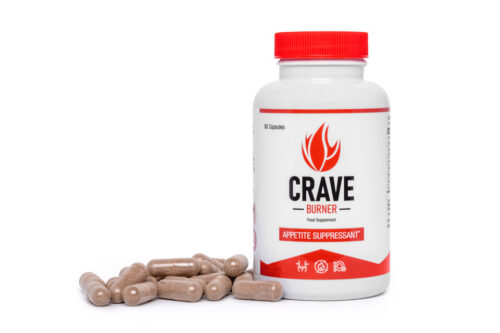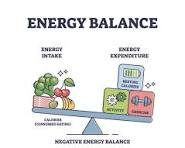This a review of step by step measure your calorie Intake solution, you might read a lot in reduce intake calories but article is different that you might be read.
Measuring your intake calorie effectively is a crucial step towards achieving your health and fitness goals. Whether you’re aiming to lose weight, gain muscle, or maintain your current physique, understanding and tracking your calorie intake is essential.
This guide will walk you through the process of measuring your intake calorie accurately and efficiently. Measuring Your calorie intake is very essential for the people that have mass body weight. Know thus, make you the first understanding step towards your intake calories reduction.
Table Of Contents
- 1. Consume Fewer Calories For Weight Loss In Measure Your Calorie Intake
- 2. Use Notebook And Smartphone Apps For Food Journal Measure Your Calorie Intake
- 3. Use Calorie Deficit Calculator Measurement As To Measure Your Calorie Intake
- 4. Whole Food And Food Supplement As To Reduce Your Calorie Intake
- 5. More On Whole Food And Food Supplement As To Reduce Your Calories Intake
- 6. Usefulness Of This Transactional Information To Reduce Your Calorie Intake
- 7. Study-Self When Approaching Of Measuring Your Calories Intake
- 8. Overwhelming When Embark On Measuring Your Calories Intake
- 9. In Conclusion Using The Summary Of This Your Calorie Intake Transactional Information In General
1. Consume Fewer Calories For Weight Loss In Measure Your Calorie Intake
To begin with, it’s important to grasp the concept of a calorie deficit detector. This tool helps you determine if you’re consuming fewer calories than your body burns, which is necessary for weight loss. On the flip side, if you’re looking to gain weight or build muscle, ensure to measure your calories intake.
One of the most effective ways to measure your intake calorie is by keeping a food journal. This practice involves recording everything you eat and drink throughout the day. By doing so, you can gain a clear picture of your eating habits and identify areas where you might be consuming more calories than you realize.
2. Use Notebook And Smartphone Apps For Food Journal Measure Your Calorie Intake
To start your food journal, you can use a simple notebook or opt for one of the many smartphone apps available. These apps often have extensive databases of foods with their calorie content, making it easier to track your intake accurately. When recording your meals, be sure to include: The type of food or drink consumed, the portion size or quantity, the time of consumption and any additional ingredients or condiments used in description.
Discover your calorie deficit detector here by click image bellow:
It’s crucial to be honest and thorough in your food journal. Even small snacks or drinks can add up over time, so don’t forget to include everything. This level of detail will give you the most accurate picture of your calorie intake.
3. Use Calorie Deficit Calculator Measurement As To Measure Your Calorie Intake
Another useful tool in measuring your intake calorie is a calorie deficit calculator. This online tool takes into account factors such as your age, gender, height, weight, and activity level to determine your daily calorie needs. By comparing this number to your actual intake from your food journal, you can determine if you’re in a calorie deficit or surplus.
To use a calorie deficit calculator effectively:
• Input your personal information accurately • Be honest about your activity level • Use the results as a guideline, not an absolute rule • Adjust your intake based on your progress and goals
Remember, these calculators provide estimates, and individual needs can vary. It’s always best to consult with a healthcare professional or registered dietitian for personalized advice.
4. Whole Food And Food Supplement As To Reduce Your Calorie Intake
When measuring your intake calorie, it’s not just about the numbers. The quality of the calories you consume is equally important. Focusing on whole foods can make a significant difference in your overall health and how your body processes calories.
Whole foods are foods that are minimally processed and don’t contain added sugars, preservatives, or artificial ingredients. These include: Fresh fruits and vegetables • Whole grains like brown rice and quinoa • Lean proteins such as chicken, fish, and legumes • Healthy fats from sources like avocados, nuts, and olive oil and a food supplement can also measure and reduce your intake calories if properly concern your body weight matter to you. Click here to discover thus.
5. More On Whole Food And Food Supplement As To Reduce Your Calories Intake
Incorporating more whole foods into your diet can help you feel fuller for longer, provide essential nutrients, and make it easier to manage your calorie intake. These foods are often less calorie-dense than processed alternatives, allowing you to eat a larger volume of food for fewer calories.
To effectively measure your intake calorie when consuming whole foods:
• Use a kitchen scale to weigh portions accurately • Learn to estimate portion sizes visually (e.g., a serving of meat should be about the size of your palm) • Be mindful of high-calorie whole foods like nuts and oils, which can quickly add up. To make it fast and unique because we are modern age where everything base on technology, the Food Supplement is easier way to reduce your intake calories. Click to find out!
6. Usefulness Of This Transactional Information To Reduce Your Calorie Intake
As you become more familiar with measuring your intake calorie, you’ll likely notice patterns in your eating habits. This awareness can be a powerful tool for making sustainable changes to your diet. You might discover that you tend to snack more in the evenings or that certain foods leave you feeling unsatisfied and prone to overeating later.
Use this information to make informed decisions about your diet. For example, if you find that you’re often hungry in the afternoon, you might choose to add a protein-rich snack to your lunch to help keep you feeling full.
Or, if you notice that you’re consuming a large portion of your daily calories through sugary drinks, you could switch to water or unsweetened tea to reduce your calorie intake. Find Out More Here Use food technology in nature!
7. Study-Self When Approaching Of Measuring Your Calories Intake
It’s important to approach measuring your intake calorie as a learning process rather than a strict regimen. Be patient with yourself and remember that sustainable changes take time. If you have a day where you consume more calories than planned, don’t get discouraged. Instead, use it as an opportunity to learn and adjust your approach moving forward.
As you continue to measure your intake calorie, you may find it helpful to set specific, achievable goals. These could include:
• Reducing your daily calorie intake by a certain amount • Increasing your consumption of whole foods • Limiting high-calorie snacks or beverages. This can be achieved by click here to learn further!
By setting clear goals, you can track your progress and stay motivated. Celebrate your successes, no matter how small, and use any setbacks as learning experiences.
Remember, measuring your intake calorie is just one part of a healthy lifestyle. It’s equally important to stay physically active, get enough sleep, and manage stress. These factors all play a role in how your body processes calories and maintains overall health.
8. Overwhelming When Embark On Measuring Your Calories Intake
If you’re new to measuring your intake calorie, it’s normal to feel overwhelmed at first. Start small by focusing on one meal at a time or tracking your intake for just a few days a week. As you become more comfortable with the process, you can gradually increase your efforts.
It’s also worth noting that while measuring your intake calorie can be a useful tool, it’s not necessary or appropriate for everyone.
If you have a history of disordered eating or find that tracking your food intake triggers negative thoughts or behaviors, it’s best to seek guidance from a healthcare professional or registered dietitian.
They can help you develop a healthy relationship with food and find alternative ways to achieve your health goals. Find Out Dietitian and Food Nutrition Usefulness for your reduce calorie intake!
9. In Conclusion Using The Summary Of This Your Calorie Intake Transactional Information In General
In conclusion, measuring your intake calorie effectively involves keeping a detailed food journal, using tools like calorie deficit calculators, focusing on whole foods, and being patient with the process.
By taking these steps and remaining consistent. Gain valuable insights into your eating habits and be better equipped to make informed decisions about your diet.
Remember, the goal is not perfection, but progress towards a healthier, more balanced lifestyle. Your Body Mass Need To Reduce and Measure for healthier life and wealthy living lifestyle. Click this Link or Image bellow:














